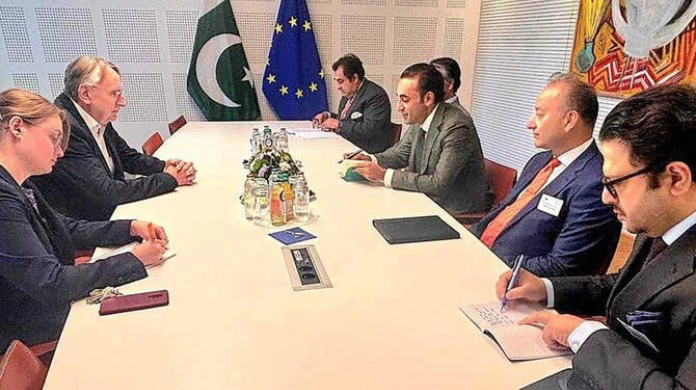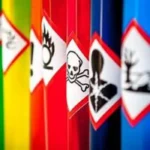A high-level Pakistani delegation headed by former Foreign Minister Bilawal Bhutto Zardari arrived in Brussels in June 2025 to engage European Union officials on escalating tensions with India. The delegation’s mission is to present Pakistan’s position on the Kashmir dispute, counter Indian narratives, and call for renewed diplomatic efforts to prevent further conflict. Bilawal emphasized the urgency of dialogue encompassing Kashmir, water security, and trade, warning that India’s aggressive actions and threats to weaponize water resources dangerously heighten the risk of war in South Asia.
Bilawal’s Diplomatic Outreach in Brussels
Delegation’s Purpose and Engagements
Following successful visits to Washington, New York, and London, Bilawal’s delegation arrived in Brussels on June 11-12, 2025, warmly received by Pakistan’s Ambassador to the EU, Rahim Hayat Qureshi. The delegation includes prominent Pakistani lawmakers and former ministers such as Dr. Musadik Masood Malik, Senator Sherry Rehman, Hina Rabbani Khar, Khurram Dastgir Khan, and Senator Syed Faisal Ali Sabzwari.
Their agenda involves meetings with senior EU officials, Belgian parliamentarians, European think tanks, and international media to present Pakistan’s narrative on recent Indo-Pak tensions. The delegation aims to debunk what it calls an Indian disinformation campaign following the recent conflict and to highlight the importance of resolving Jammu and Kashmir in line with United Nations Security Council (UNSC) resolutions and the aspirations of the Kashmiri people.
Key Meetings and Statements
Bilawal met with Katleen Depoorter, Vice Chair of the Belgian Parliament’s Foreign Affairs Committee, and Bernd Lange, Chair of the European Parliament’s Committee on International Trade. He conveyed Pakistan’s grave concerns over India’s rejection of dialogue, threats to weaponize water, and refusal to honor UNSC resolutions, which he said have “dangerously lowered the threshold for nuclear conflict in South Asia”.
Bilawal stressed that “war cannot be a solution to any issue” and called for comprehensive dialogue addressing Kashmir, water disputes, and trade to restore peace and stability. He praised the EU’s principled stance on diplomacy, rule of law, and support for human rights reforms and inclusive legislation in Pakistan.
Concerns Over India’s Aggressive Actions and Water Security
Threats to Indus Waters Treaty and Regional Stability
A central theme of the delegation’s message is India’s alleged attempts to weaponize water by threatening Pakistan’s share under the Indus Waters Treaty (IWT). Bilawal warned that such actions violate international law and could provoke war, stating bluntly, “If India stops our water supply, it will lead to war.” The delegation condemned India’s suspension of the IWT, highlighting the risks this poses to ecosystems, livelihoods, and regional peace.
Military Provocations and Humanitarian Impact
Bilawal and delegation members accused India of unprovoked military strikes in Azad Kashmir and occupied Kashmir, resulting in civilian casualties and destruction. Ali Raza Syed, Chairman of Kashmir Council Europe, welcomed Bilawal in the European Parliament and echoed concerns about India’s oppressive tactics against Kashmiris and breaches of international law. He emphasized the need for continuous engagement with Europe to expose Indian atrocities and push for a just resolution of Kashmir according to UN resolutions and Kashmiri will.
Pakistan’s Commitment to Peace and Counterterrorism
Bilawal highlighted Pakistan’s global recognition for counterterrorism efforts and compliance with international standards, including successful completion of the Financial Action Task Force (FATF) process. He underscored Pakistan’s message of peace and willingness to engage in dialogue, asserting that stability and peaceful coexistence are essential for maximizing trade and regional prosperity.
The delegation also stressed insulating development and trade cooperation from destabilizing external shocks caused by regional tensions, emphasizing that peace is integral to economic growth and cooperation.
Regional and International Implications
The delegation’s diplomatic push in Brussels reflects Pakistan’s strategy to build international awareness and support against what it describes as India’s unilateral and aggressive policies. The focus on water security as a potential geopolitical weapon underscores the fragility of South Asia’s security environment and the urgent need for multilateral dialogue.
By engaging the EU, Pakistan aims to leverage Europe’s influence to encourage India to return to the negotiating table and uphold international treaties. The delegation’s efforts also seek to counter Indian propaganda and narratives that Pakistan views as misleading or false.
A Call for Dialogue and Stability
The Bilawal-led delegation’s visit to Brussels marks a significant diplomatic effort to internationalize the Kashmir dispute and related regional issues. By urging the European Union to support comprehensive dialogue on Kashmir, water disputes, and trade, Pakistan seeks to avert further escalation and promote peace in South Asia.
Bilawal’s warnings about India’s aggressive actions and threats to water security highlight the precarious balance in the region, where unresolved disputes risk igniting broader conflict. The delegation’s message is clear: only sustained diplomatic engagement and adherence to international law can restore stability and prosperity to the region









